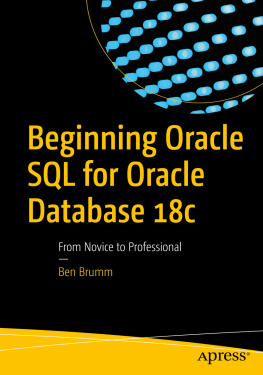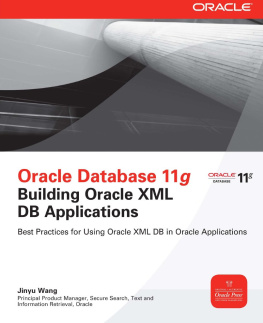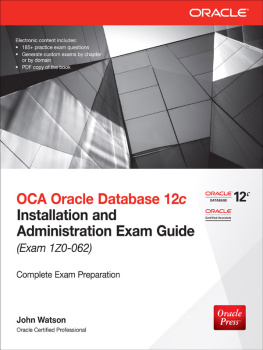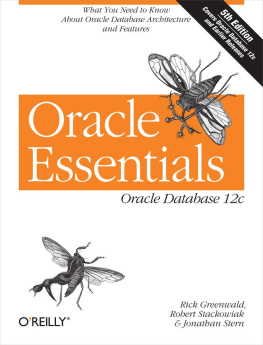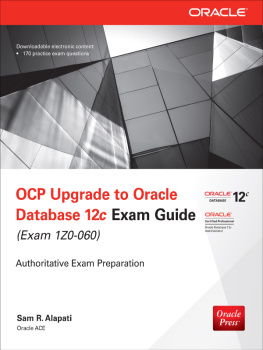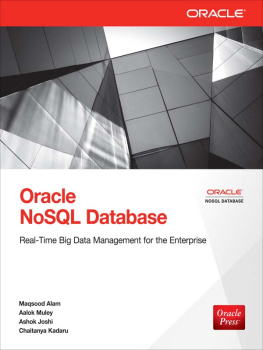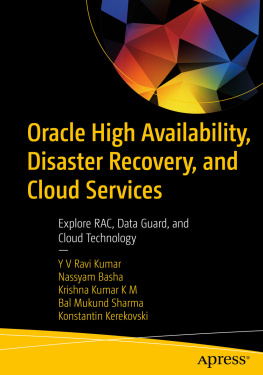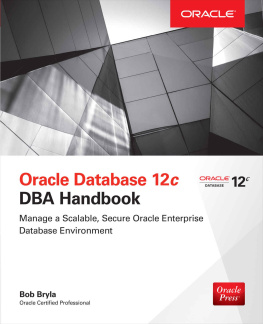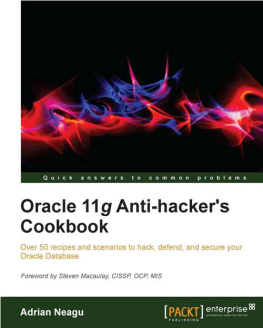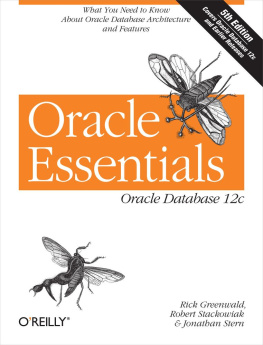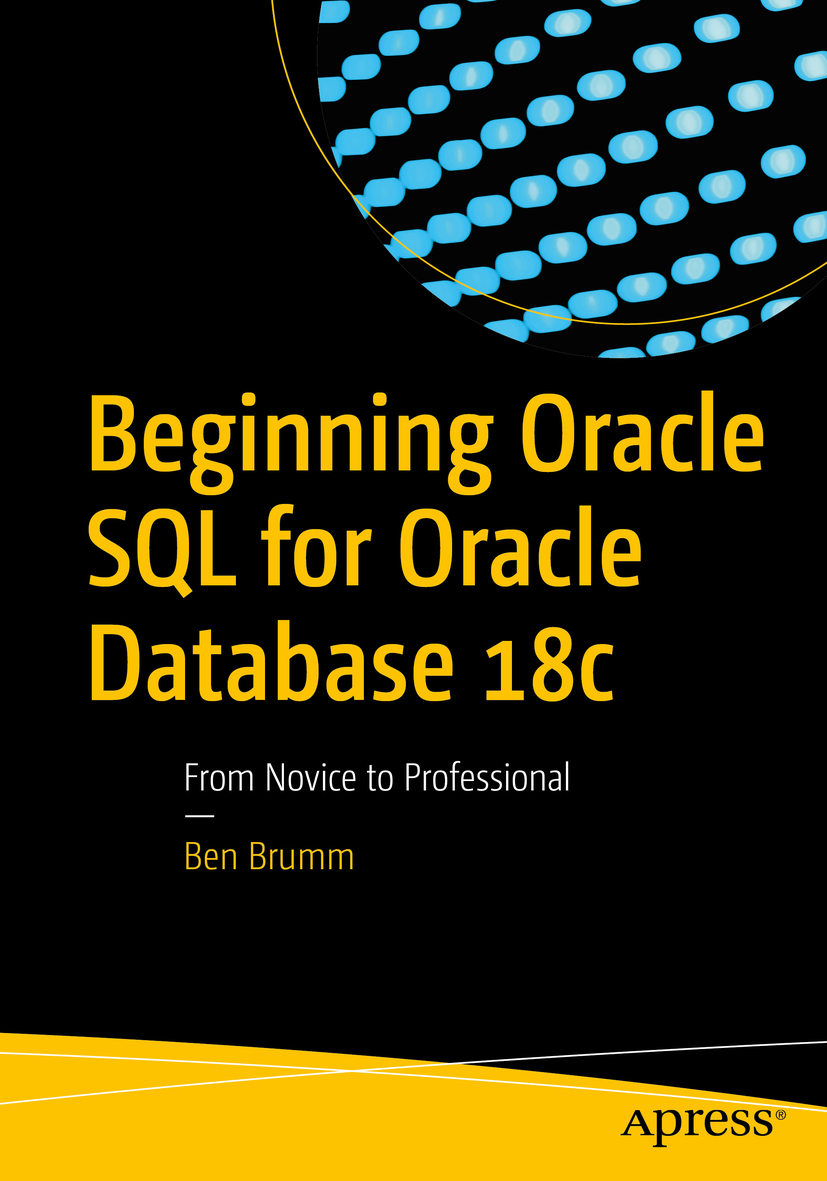Brumm - Beginning Oracle SQL for Oracle database 18c: from novice to professional
Here you can read online Brumm - Beginning Oracle SQL for Oracle database 18c: from novice to professional full text of the book (entire story) in english for free. Download pdf and epub, get meaning, cover and reviews about this ebook. City: Berkeley;California, year: 2019, publisher: Apress, genre: Computer. Description of the work, (preface) as well as reviews are available. Best literature library LitArk.com created for fans of good reading and offers a wide selection of genres:
Romance novel
Science fiction
Adventure
Detective
Science
History
Home and family
Prose
Art
Politics
Computer
Non-fiction
Religion
Business
Children
Humor
Choose a favorite category and find really read worthwhile books. Enjoy immersion in the world of imagination, feel the emotions of the characters or learn something new for yourself, make an fascinating discovery.
Beginning Oracle SQL for Oracle database 18c: from novice to professional: summary, description and annotation
We offer to read an annotation, description, summary or preface (depends on what the author of the book "Beginning Oracle SQL for Oracle database 18c: from novice to professional" wrote himself). If you haven't found the necessary information about the book — write in the comments, we will try to find it.
A marquee feature ofBeginning Oracle SQL for Oracle Database 18cis the small chapter size. Content is divided into easily digestible chunks that can be read and practiced in very short intervals of time, making this the ideal book for a busy professional to learn from. Even just a 15-20 minute block of free time can be put to good use.
Author Ben Brumm begins by helping you understand what a database is, and getting you set up with a sandbox in which to practice the SQL that you are learning. From there, easily digestible chapters cover, point-by-point, the different aspects of writing queries to get data out of a database. Youll also learn about creating tables and getting data into the database. Crucial topics such as working with nulls and writing analytic queries are given the attention they deserve, helping you to avoid pitfalls when writing queries for production use.
What Youll Learn
Create, update, and delete tables in an Oracle database
Add, update, delete data from those database tables
Query and view data stored in your database
Manipulate and transform data using in-built database functions and features
Correctly choose when to use Oracle-specific syntax and features
Who This Book Is For
Those new to Oracle who are planning to develop software using Oracle as the back-end data store. The book is also for those who are getting started in software development and realize they need to learn some kind of database language. Those who are learning software development on the side of their normal job, or learning it as a college student, who are ready to learn what a database is and how to use it also will find this book useful.
Brumm: author's other books
Who wrote Beginning Oracle SQL for Oracle database 18c: from novice to professional? Find out the surname, the name of the author of the book and a list of all author's works by series.

